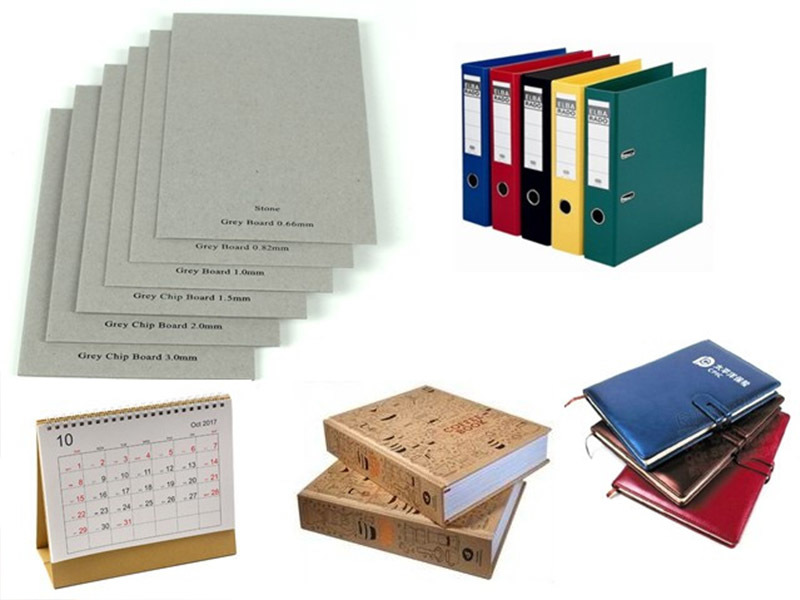Telephone
+86-769-88013336

Maybe you don't know its name, you’ve probably seen grey chipboard paper in many different places.
Some of the uses for the versatile material include shoeboxes, book covers and in many stationery shops.
We’ll learn more about this strong and durable paper, including why it’s so popular and why it’s grey.
Chipboard is a thick kind of paper stock that is made from 100% recyclable materials.
Other common names for chipboard include strawboard (as it was made in the past with cereal straw), container board, unlined chipboard and greyboard.

Chipboard paper is made from waste paper, packaging and cardboard. The waste material is mashed together to produce paper pulp.
If the pulp contains a lot of newspaper it will have a grey colour instead of the usual brown.
Different Chipboard Sizes
Unlike other paper stock, chipboard is categorised on its thickness or “caliper” – as opposed to weight. This often confuses people who want to buy the product.
Sometimes the thickness is measured in millimetres (mm), and sometimes it is measured in microns. Microns are sometimes referred to as “Mics” or by the symbol µ (the letter m in classical Greek).
Unlined chipboard can be supplied in sizes ranging from 0.3mm (300 micron) up to 5mm (5000 micron) thick.
It’s useful to consider how difficult the different thicknesses will be to cut when you’re working with chipboard. Thinner sizes can be cut with scissors while thicker sizes will require a guillotine or a die cutter.
Using grey chipboard paper has many different benefits. Some of these include:
Environmentally friendly & made from 100% recyclable materials.
Very thick and durable.
Much cheaper than comparable products.
Grey Chipboard also has a grey “unfinished” look which appeals to brands advertising a “No Frills”, environmentally-sustainable product.
The finish also makes it a favourite for stationery. It’s easier to decorate than glossy brown and is used in many scrapbooks.
Grey chipboard applications used to many fields and it can be cut, stamped, inked and painted.
This makes it ideal for many different kinds of product packaging and for different kinds of stationary.
Some of its more common uses include:
Shoeboxes
Hardback book material
Folders
Calendars
Cable reels
Photo frames
Shirt accessories
Puzzles & crafts
Copyright © 2019 NEW BAMBOO PAPER (HK) CO., LIMITED | All Rights Reserved